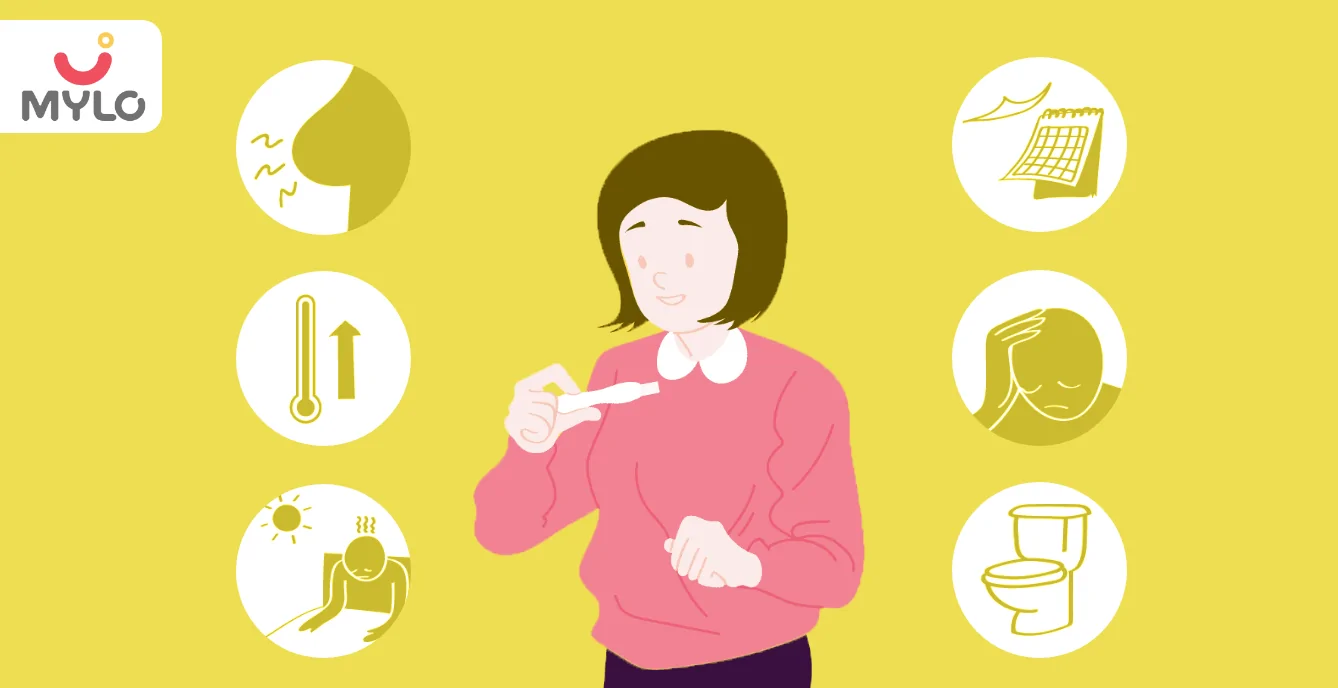Home

Growth & Development

How Respiratory Syncytial Virus (RSV) Impacts Premature Babies Differently: What Every Parent Needs To Know
In this Article

Growth & Development
How Respiratory Syncytial Virus (RSV) Impacts Premature Babies Differently: What Every Parent Needs To Know
Updated on 23 November 2024
How Respiratory Syncytial Virus (RSV) Impacts Premature Babies Differently: What Every Parent Needs To Know
Every year, more than 3 million children under the age of five are hospitalized due to respiratory tract infections, with Respiratory Syncytial Virus (RSV) being a primary cause. RSV causes infections of the lungs and respiratory tract, and while adults with heart or lung disease, or a weakened immune system, can also contract the virus, it is particularly dangerous for infants (especially those under 12 months) and premature babies due to their underdeveloped or weakened immune systems.
In this article, we will explore more about RSV, its impact on preterm babies, and the preventive measures parents and caregivers can take to protect their little ones.
Understanding Respiratory Syncytial Virus (RSV)
RSV is a virus that primarily affects the lungs and respiratory airways. It is highly contagious and spreads through respiratory droplets when an infected person coughs or sneezes. While it often presents as a mild cold in many kids, RSV can sometimes lead to serious complications, including difficulty breathing, in some newborns. Preterm babies, infants under 6 months, and children with underlying health conditions are at the greatest risk for developing severe complications, and in some cases can even be fatal.
Why Preterm Babies Are At Greater Risk?
Preterm babies, defined as those born before 37 weeks of pregnancy, are more vulnerable to Respiratory Syncytial Virus (RSV) for several reasons such as:
- Underdeveloped Lungs
Premature babies often have lungs that aren't fully developed, making it harder for them to handle infections like RSV. RSV can cause severe inflammation in the airways, leading to complications such as bronchiolitis and pneumonia, which are particularly dangerous for preterm infants. -
Immature Immune System
The immune systems of premature babies are still developing, so they have a harder time fighting off infections like RSV. This increases their risks of experiencing intensified symptoms and severe complications. -
Weaker Respiratory Muscles
Premature babies have weaker muscles for breathing, making it hard for them to clear mucus from their respiratory airways. RSV can cause mucus to build up, making it even more difficult for them to breathe. -
Increased Oxygen Need
Preemies often need extra oxygen to help them breathe due to their underdeveloped lungs. RSV can worsen breathing difficulties in preemies by causing inflammation and mucus buildup in the airways, making it harder for them to get enough oxygen.
Symptoms:
In premature infants, RSV may start like a common cold, but the symptoms are often more severe. Symptoms of RSV infection in preemies include:
-
Wheezing
-
Fever
-
Nasal congestion
-
Rapid breathing
-
Fussiness or irritability
-
Cough
-
Decreased appetite
-
Minimal interest in activities
Preventing RSV In Premature Babies
To protect premature infants from RSV, parents and caregivers should take the following measures:
-
Wash your hands thoroughly before touching your baby to prevent the virus from spreading.
-
Keep your preemie away from crowded places, particularly during the RSV season (rainy and early winter season).
-
Clean and sanitize surfaces, toys, and items that come in contact with your baby.
-
Breastfeed your baby if possible, as breastfeeding provides antibodies that boost your baby's immune system and reduce the infection risks of RSV.
-
RSV is highly contagious, so limit your baby's exposure to individuals showing cold-like symptoms.
-
Consult your healthcare provider about preventive shots for RSV to help protect your baby from severe infection.
The Final Takeaway
RSV can be life-threatening for premature babies, posing serious risks to their health, but with the right precautions, parents can reduce the risks. By staying vigilant, practicing good hygiene, and seeking preventive care, you can help protect your baby from the severe effects of this contagious virus and support their health and well-being during this vulnerable stage.
This initiative by AstraZeneca is dedicated to raising awareness about RSV. For more valuable insights and expert tips, follow PretermRSVCare on Facebook and Instagram. Or click on the icons below
Approval ID: IN-15407
Expiry Date: 15/11/26
References:



Written by
Priyanka Verma
Priyanka is an experienced editor & content writer with great attention to detail. Mother to an 11-year-old, she's a ski
Read MoreGet baby's diet chart, and growth tips

Related Articles
Related Topics
RECENTLY PUBLISHED ARTICLES
our most recent articles

Health & Wellness
Unlocking the Hidden Potential: 8 Incredible Shatavari Powder Uses for Men and Women

Hormones
Are You Aware of These 11 Early Signs and Symptoms of Pregnancy?

General Father
Top 5 tips to build a budget-friendly nursery for your little one

Teething
Toddler Teething: What to Expect and How to Help

Early Education
Adverbs: A Comprehensive Guide to help small children learn the usage of adverbs

Early Education
Expand Your Child's Vocabulary with words that start with X: Easy, Positive, and Engaging Words, Animals, Countries, and Fruits
- Unlocking Language Proficiency: The Ultimate Guide to Top 100 Sight Words for Kindergarten and Beyond
- Exploring Common Words that Start with P to Enhance Vocabulary in Small Children
- 100+ Common Words that start with L to Enhance the Vocabulary of Small Children
- 100 Common Words that start with 'C' for Small Children
- List of 100+ Common Words that start with 'D' for Small Children
- 100 Common Words that start with 'S' for enhancing vocabulary in small children
- List of Most Common Words that start with v for small children
- Common Words that start with n for enhancing learning in small children
- Words that start with O for early learning in small kids
- 100 Common words that start with 'R' for Small Kids
- 100 Common words that start with 'U' for Small Kids
- Common words that start with Y for Vocabulary Enhancement in Small Children
- List of Common Q Words to Enhance Small Children's Vocabulary
- Common Maths Shapes and the Benefits of Teaching Shapes to Small Children


AWARDS AND RECOGNITION

Mylo wins Forbes D2C Disruptor award

Mylo wins The Economic Times Promising Brands 2022
AS SEEN IN

- Mylo Care: Effective and science-backed personal care and wellness solutions for a joyful you.
- Mylo Baby: Science-backed, gentle and effective personal care & hygiene range for your little one.
- Mylo Community: Trusted and empathetic community of 10mn+ parents and experts.
Product Categories
baby carrier | baby soap | baby wipes | stretch marks cream | baby cream | baby shampoo | baby massage oil | baby hair oil | stretch marks oil | baby body wash | baby powder | baby lotion | diaper rash cream | newborn diapers | teether | baby kajal | baby diapers | cloth diapers |






